
Politics & Society
Real action needed on Aboriginal deaths in custody

We need to go beyond the institutional hypocrisy of Reconciliation Week events and start really addressing the racism in our legal system
Published 26 May 2022
Sshhhh, can you hear that? Listen carefully… listen, don’t make a sound! Can’t you hear it? Neither can I, but I know it’s coming.
Every year I wait, and sure enough, it arrives. There is a request to comment or write something on the issues that my people face in the legal system – the racist, white, settler legal system. It must be Reconciliation Week. *eye roll*
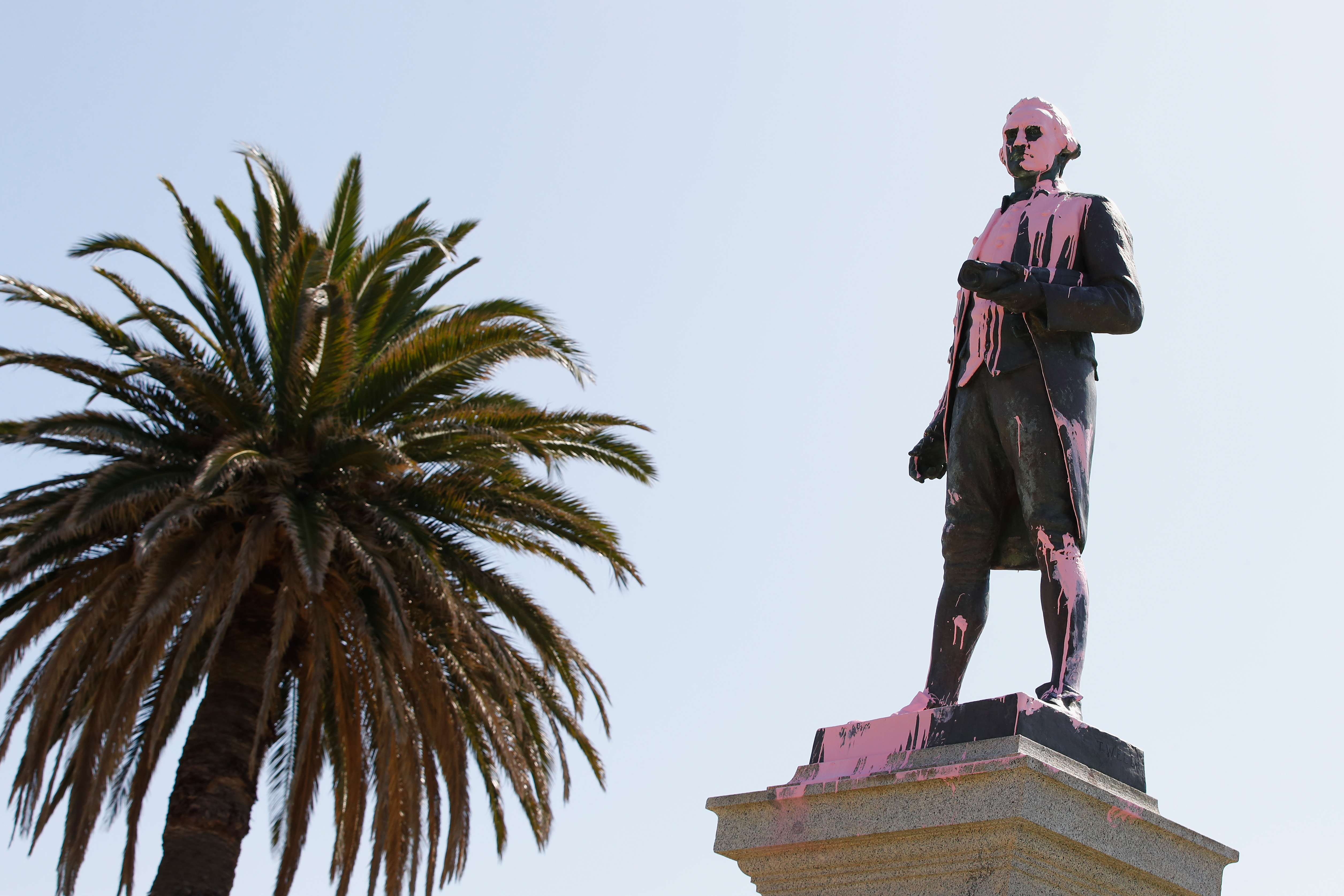
Once you cut through the warm rhetoric that clouds Reconciliation Week, you can see the hypocrisy of institutions who proclaim their deep commitment to removing the entrenched structural barriers which prevent First Nations peoples thriving – but only show up for seven days a year.
Aboriginal lawyer and Barkindji woman Gemma McKinnon, puts it this way:
“Australian governments have become comfortable with the idea of symbolic forms of Reconciliation. We have endured years of lemon myrtle-dusted morning teas, flag raisings and screenings of Rabbit Proof Fence, yet institutionalised racism prevails everywhere I look.”

Politics & Society
Real action needed on Aboriginal deaths in custody
Throughout the year, Indigenous peoples and their too few allies, advocate on issues around the over-representation of our peoples in all facets of the systemically racist institutions of white settler law.
Others choose silence, ignorance or apathy. This week is one of the few windows marked in the colonial calendar to pay minimal attention to Indigenous peoples.
Reconciliation was a “goal” that came out of the Royal Commission Into Aboriginal Deaths In Custody. However, the implementation of the Royal Commission’s 339 recommendations has been patchy.
We have adopted the feel-good rhetoric of the end point, with minimal commitment to the pathway there.
This is a consistent story across the abundance of Royal Commissions, inquiries and reports – that First Nations peoples contribute to – and governments continue to ignore. There seems to be a holding pattern to keep Indigenous people second-guessing if anyone is concerned.
American-Australian writer and legal academic Sarah Krasnostien’s recent Quarterly Essay resonates with First Nations peoples’ experiences with government Inquiries:
“It is unclear where royal commissions fit into the accountability mechanisms of the political and legal systems. This might be their appeal. Public inquiries are a ritual of Australian society through which the violated moral order is condemned, and an idealised image of the collective is restored. However, our lack of loyalty to their findings indicates that, as an electorate, we value optics over operationalisation.”
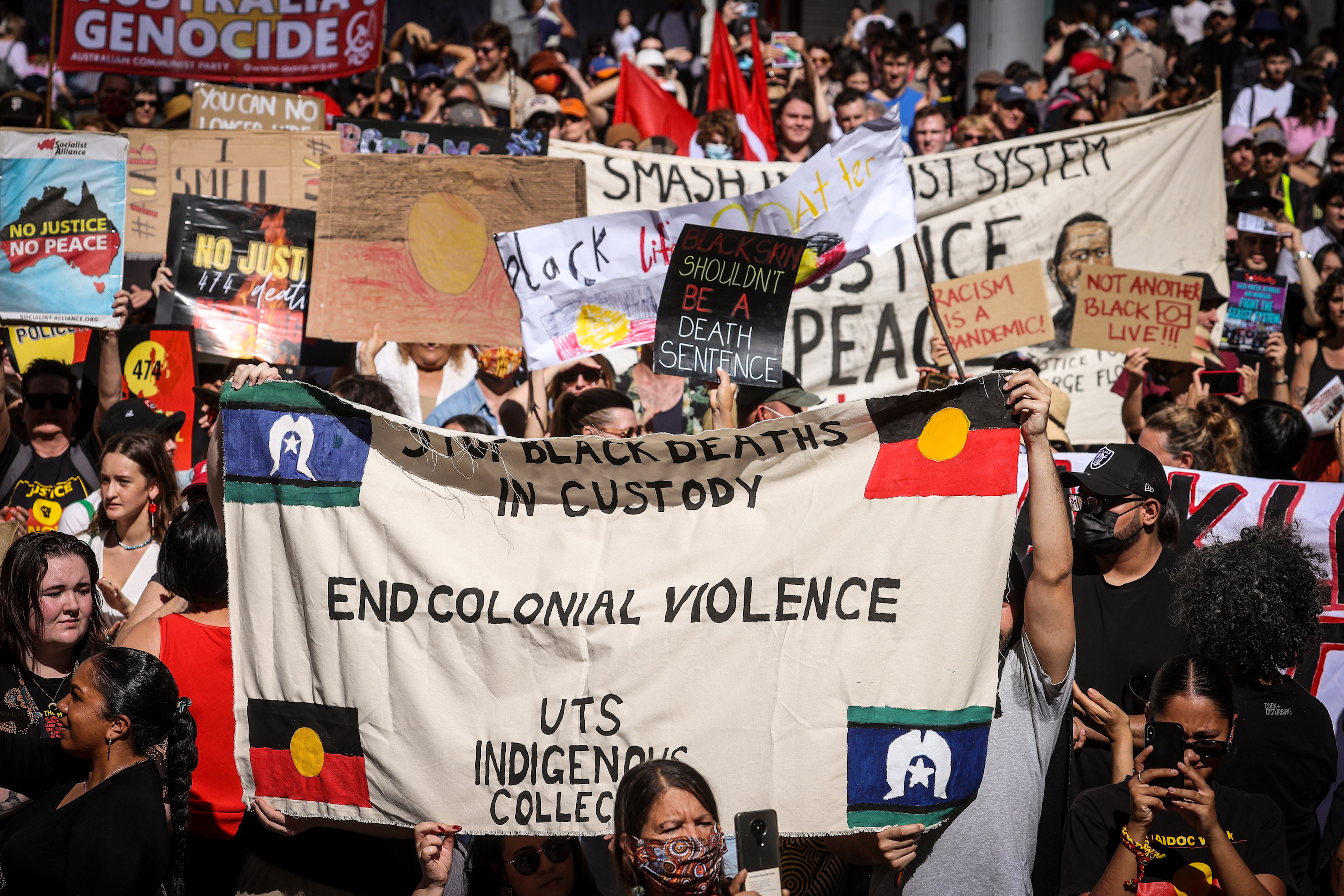
The Australian Government’s investments in setting up major inquiries examining the barriers faced by Aboriginal and Torres Strait Islander people hasn’t been followed up with the same enthusiasm for implementing findings.
Some key missed opportunities include:
The Royal Commission into Aboriginal Deaths in Custory (1991) – still waiting for the recommendations to be substantially implemented.
The Royal Commission into the Prevention and Detention of Children in the Northern Territory (2017); despite the recommendations and findings unspeakable things continue to happen to children in Don Dale prison.
The Australian Law Reform Commission’s The Pathways to Justice report (2018): still waiting for a formal response.

Politics & Society
First Nations peoples as political designers
I, like many First Nations people studying law, was naïve.
We go into law thinking we will get these tools in order to make a difference and bring equity and fairness to our people. This is inspired by a belief in justice and by courtroom scenes from civil rights’ dramas.
However, after the first year (if not earlier), we realise that this law is systemically racist towards our people, and this can’t be fixed with a closing monologue to a jury – its theory and the way it’s taught doesn’t resemble our world.
The law isn’t fair and just; actually, far from it. The colonial legal system is doing what it was set up to do – incarcerate Indigenous people, if not to kill.
In the decades since completing my law degree, I have been a lawyer for Legal Aid, an Anti-Discrimination Commissioner, and worked in Community Engagement on a Royal Commission looking at the detention and removal of Aboriginal children.
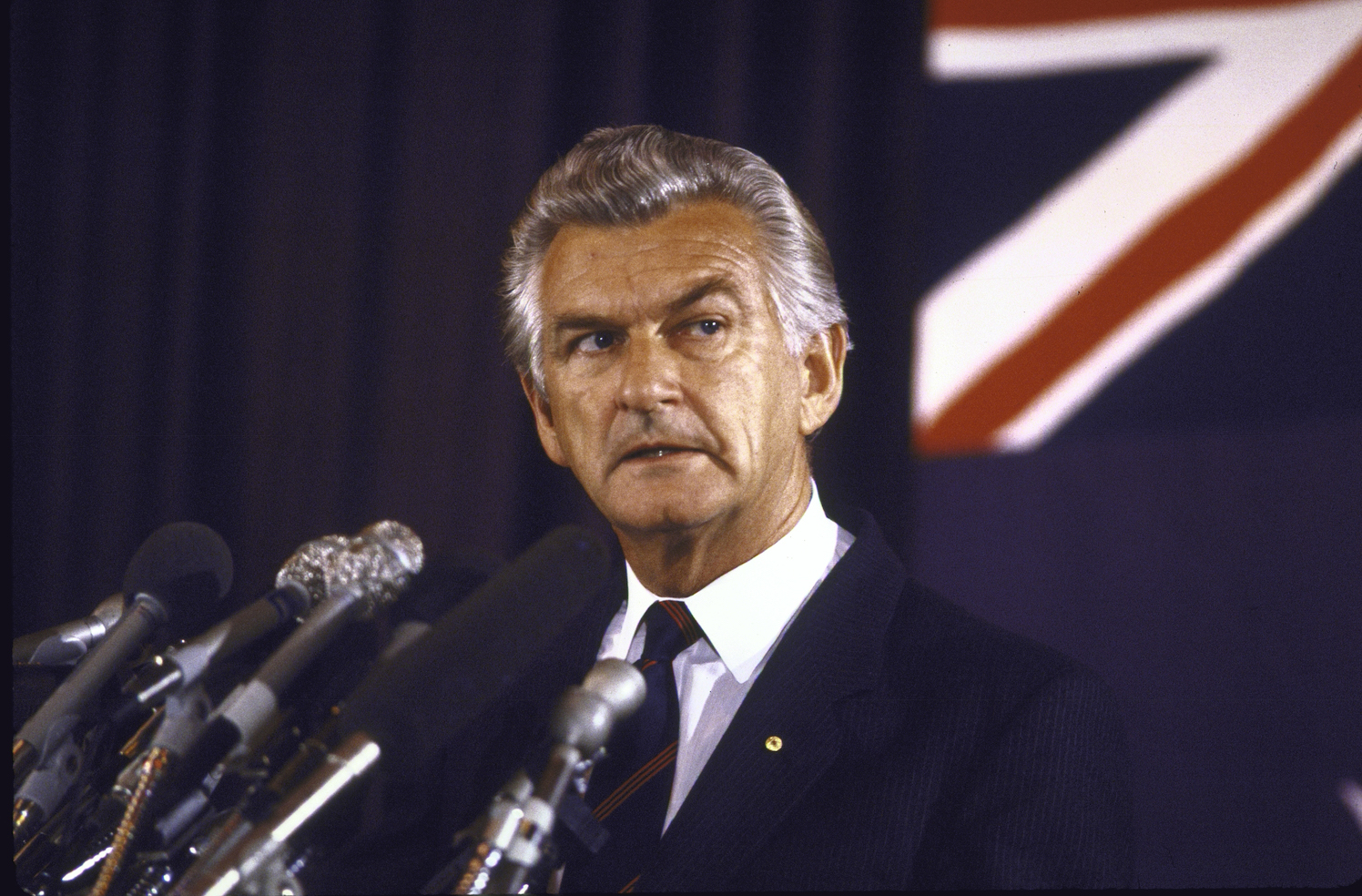
I’ve studied law through a bachelors, masters and PhD, and still I can’t see the system changing. I’ve lost faith in the profession – I see now that “the master’s tools will never dismantle the master’s house.”
I’ve decided to put my efforts into tackling the legal teachings of white settler law, becoming a faculty member at Melbourne Law School, where I am the Associate Dean of Indigenous Programs and Co-Director of the newly established Indigenous Law and Justice Hub (ILJH).

Health & Medicine
Embracing queer Indigenous Australia
Victoria is currently undertaking historic Truth Telling and Treaty processes. These truth and justice processes are practices of reconciliation in the true sense.
As called for by the First People’s Assembly, the Yoorrook Justice Commission is investigating historical and ongoing injustices committed against Aboriginal Victorians since colonisation, across all areas of social, political and economic life.
It will identify systemic injustices which currently impede First Peoples from achieving self-determination and equality – and make recommendations to address them, including recommendations in relation to education.
This is an important opportunity to advocate for educational reform across the board, extending to tertiary and ongoing professional education.
In my role, I hope to see recommendations in relation to mandatory cultural awareness and cultural safety education for legal practitioners to support respectful and effective engagement with Aboriginal clients in Victoria.
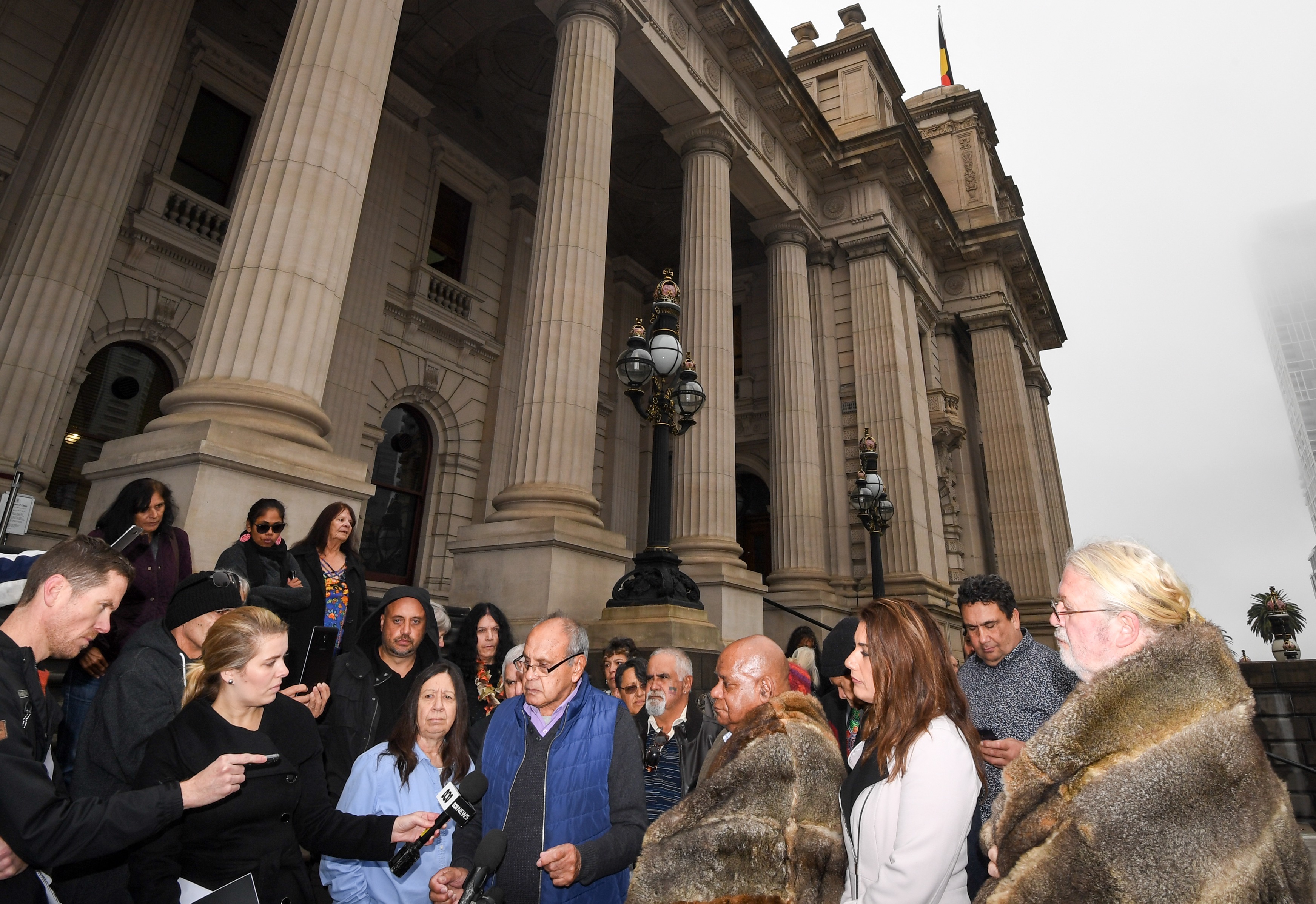
These recommendations could be similar to those of the Truth and Reconciliation Commission of Canada.
The Commission called for Canadian law schools and professional education bodies to ensure that lawyers receive appropriate cultural competency training, including an understanding of international human rights frameworks relating to Indigenous rights and skills-based training in conflict resolution, human rights and anti-racism.
We need these measures to shift the values of people working in positions of power, so that they understand their role in relation to Aboriginal and Torres Strait Islander people’s rights and work with a commitment which is sustained.

Politics & Society
Returning water rights to Aboriginal people
There is no requirement in the tertiary study of law in Australia to undertake specific education on Indigenous content to work with and represent Aboriginal and Torres Strait Islander people in the criminal legal system.
There are no regulatory requirements for lawyers to complete cultural awareness training or specific education on Indigenous content in their continuing professional development, other than those employers may require.
This means that young lawyers emerge from leading legal institutions with great knowledge of what the law is, but little understanding of how to best communicate it to their clients in language that they can understand – let alone understand their client’s advocacy needs as they relate to their social, economic and cultural contexts.
Aboriginal and Torres Strait Islander women surveyed throughout the Australian Human Rights Commission’s Wiyi Yani U Thangani report emphasised the need for cultural awareness of Aboriginal and Torres Strait Islander peoples to be mandatory for practitioners and law enforcement.
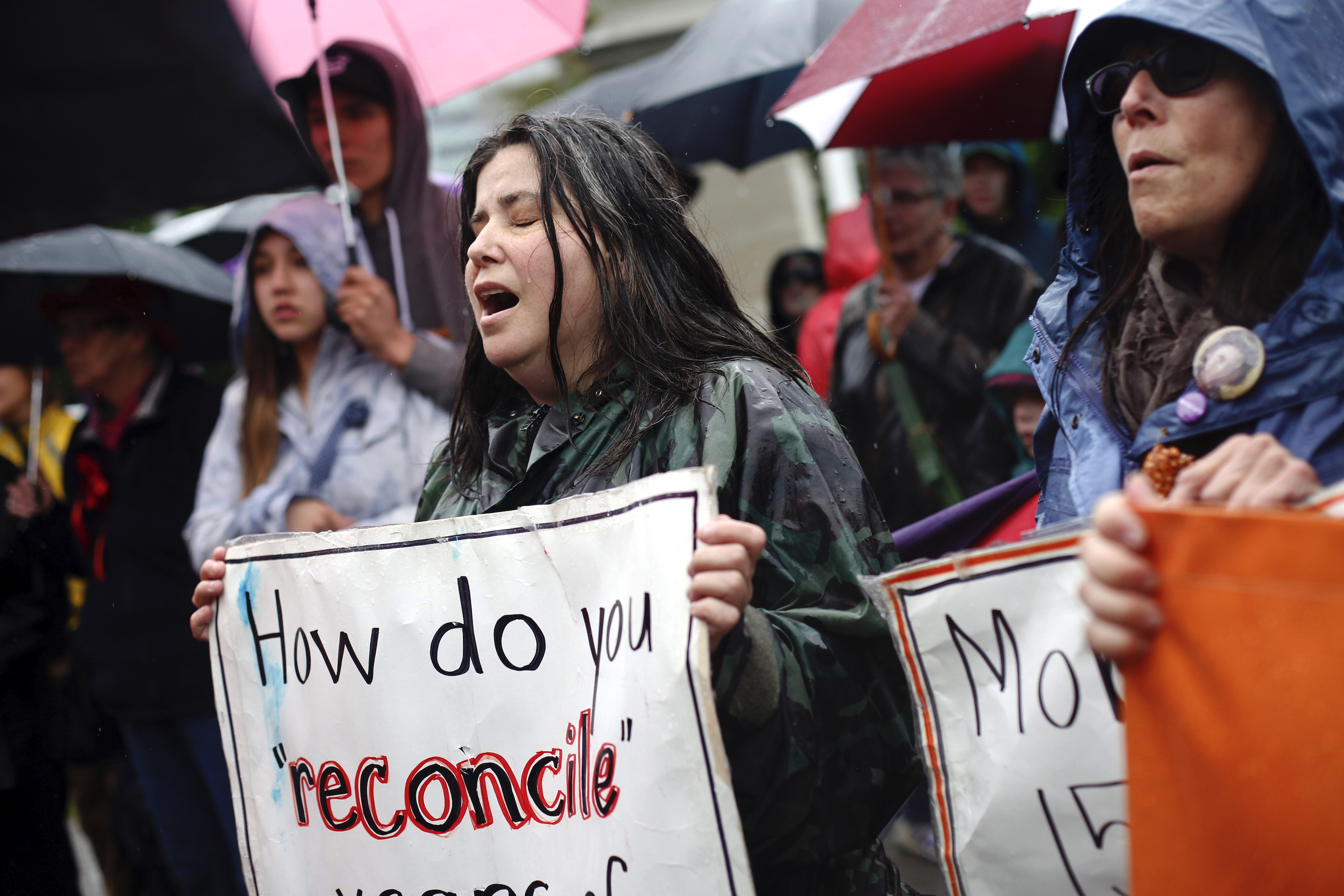
The Council of Australian Law Deans (CALD) has also called for law schools to work in partnership with First Nations peoples to create culturally competent and culturally safe courses, acknowledging the law’s systemic discrimination against First Nations peoples.
A key driver of the lack of Indigenous content in curricula is that law schools have no requirement to teach this content throughout prescribed compulsory subjects to gain accreditation.
This should be a core requirement taught to a new generation of lawyers.

There are spaces within the profession which are developing practises and standards when dealing with Indigenous people.
For example, NSW Legal Aid Commission has introduced Standards for Aboriginal clients, overseen by a private lawyers standards unit led by an Aboriginal woman.
The standards have changed the way that Legal Aid engages private lawyers to work on their behalf, establishing a process to remove them from future work or put development requirements in place if they aren’t providing a good service to their Aboriginal clients.
I understand that they are in the process of finalising a mandatory online training program for all private lawyers about working with Aboriginal clients, and that they will survey Aboriginal clients to understand whether their experiences are improving.
Such examples are terrific and should actually be mandatory right across the legal profession. Until such requirements are universal, there will be continued systemic issues when representing Aboriginal clients.

There should be immediate consideration of requiring people who work in the areas of the law and justice with high representation of Aboriginal and Torres Strait Islander clients to complete a certification in Indigenous cultural competency and safety, and the embedding of a requirement for expertise in this area in relevant annual ‘Accredited Legal Specialist’ courses – like Children’s Law and Criminal law.
Each of these initiatives must be led and designed by First Nations people themselves.

Environment
The future of our cities is Indigenous
The current Victorian Government has shown leadership not seen anywhere else in Australia with its respect towards Aboriginal people. But the proof of how serious they are will come when the Yoorrook Justice Commission delivers its recommendations – and we see whether and how the Victoria Government implements them.
I have doubts about Reconciliation Week when it comes to white settler law, but it’s initiatives like these that give me a glimmer of hope.
But ‘ssshhh’ – until the week is over and all the colonialists go back to being colourblind again. They don’t want to highlight too many of the issues – they fear they might have nothing to talk about next year.
Read more about our work and meaningful Reconciliation practice at the Indigenous Law and Justice Hub where you can keep up to date by subscribing.
Thanks to Indigenous Law and Justice Hub Research Fellow Jaynaya Dwyer for her assistance with the preparation of this article.
Banner: Getty Images